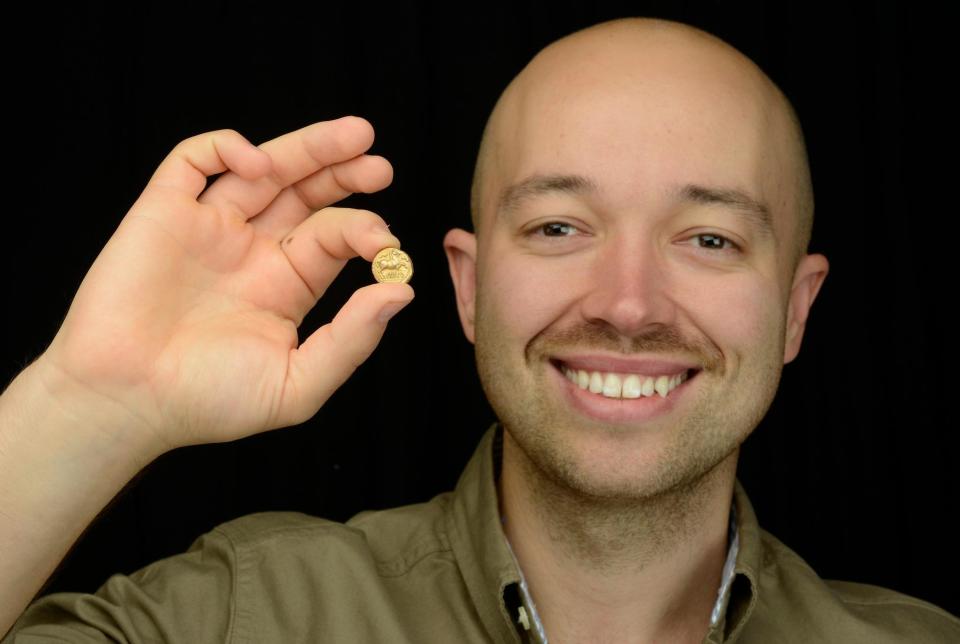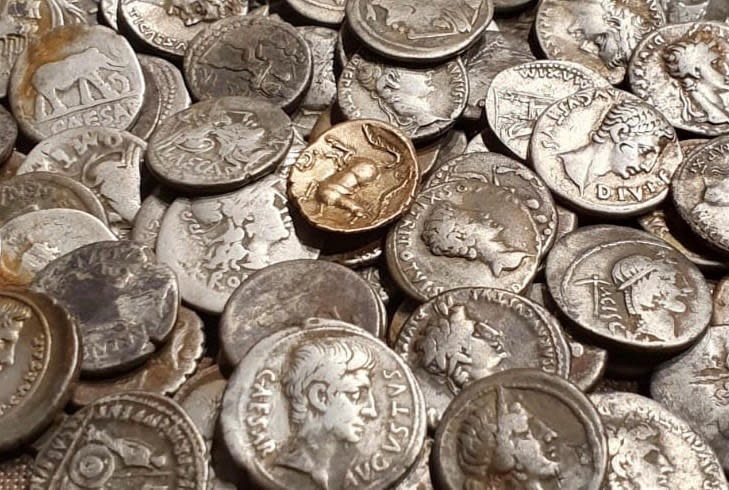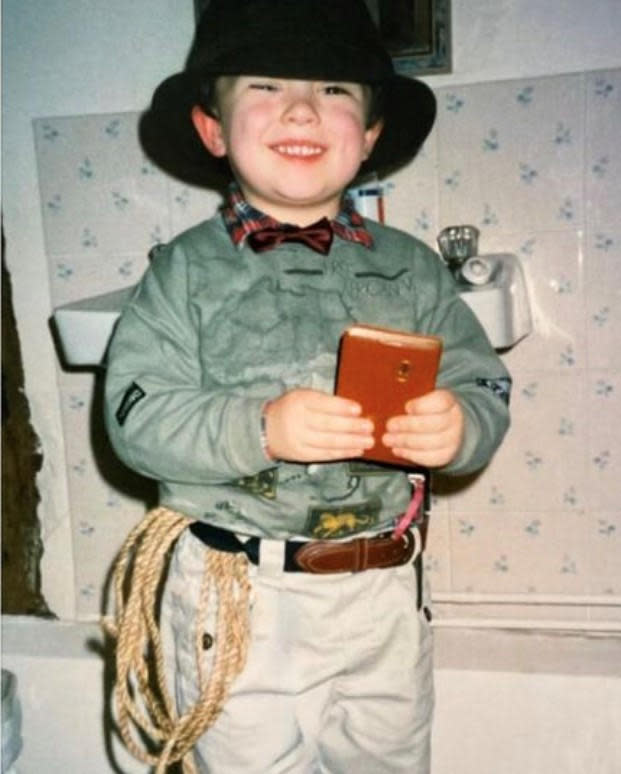A British man who found a massive cache of ancient Roman gold and silver coins while hunting with a metal detector has a lot more modern currency in his pocket after the treasure was auctioned off for $176,000.
George Ridgway, a trained archaeologist, investigated an unusual marking in a recently harvested field in Suffolk, England in September 2019, according to a news release from Noonans Auctions. He knew that a Roman road had once run close to the field, and thought there might be something to find.
Hours scouring the area turned up nothing, he said, but when he shifted his position by just 30 yards, he found two Roman brooches that dated back to the 1st century. Shortly after, he found a silver coin issued by Julius Caesar in 46 BC. Another three hours of searching turned up 160 more silver coins and some pottery fragments.


“I knew I had made an important archaeological discovery and called my dad to guard the site overnight while we waited for an archaeological team to arrive and excavate the site,” the 34-year-old said. “It took three months to recover the hoard.”
During that excavation, researchers found even more coins, including gold pieces. In total, 748 coins, dated from as early as 206 B.C., were recovered. Alice Cullen, a coin specialist at the auction house, said it was one of the largest hoards of Iron Age and Roman coins found in the United Kingdom. The coins may have been buried by a long-serving soldier in Rome’s XX Legion, who were once stationed in what would later be known as Colchester, England, Cullen said. There was a “fierce battle” in the area around 47 A.D., Cullen said, and a victim of the conflict may have been the person who buried the coins.
Sixty-three of the coins were claimed by the British Museum and the Colchester & Ipswich Museum, to be displayed in their collections, and the rest were auctioned. While the auction house expected the sale to garner about $100,000, it actually brought in more than $176,000, according to CBS News partner the BBC.


A coin issued by Gaius Caesar – also known as Caligula – decorated with a portrait of the Empress Agrippina and dated to A.D. 37-38 sold for about $9,295, according to the BBC. Another coin, issued by Claudius and dated to A.D. 41-42, sold for about $6,640.
Ridgway said the proceeds of the sale will be split between himself and the landowner of the site where the coins were found. He said that such a find has been like a dream come true.
“I was inspired by my childhood hero Indiana Jones to start history hunting when I was 4 years old, and I dreamed of finding a Roman hoard since my grandmother bought me a metal detector for my 12th birthday,” Ridgway said. “It was an awe-inspiring moment when I realised that I had found one!”


Baby hippo Moo Deng draws a crowd
How to spot scams when buying, renting a home
Eddie Vedder on the origin of Pearl Jam: “It was heaven”
